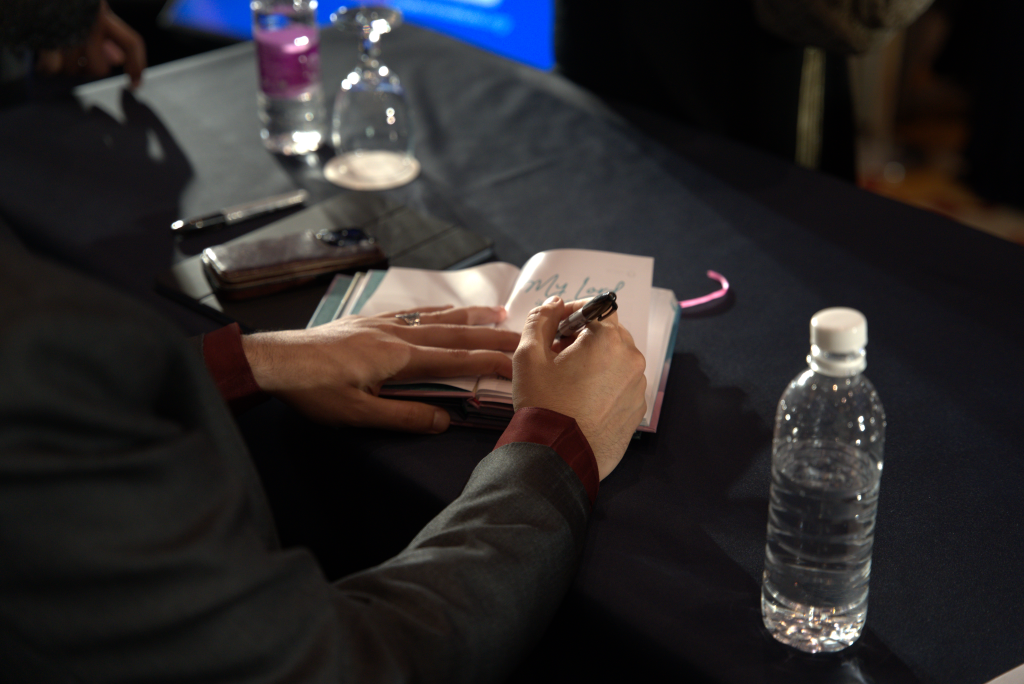What are the most heard phrases when you talk to someone about your struggles with mental health? Is it “As a Muslim, you need to increase your iman” or “You should pray and salah more. That will solve your problem.” But will it, though?
It’s hard to speak up about mental health when some people always try to shun us away from this topic. Some people are afraid to get checked and diagnosed because they are afraid of being labelled “crazy” just because they are struggling with their mental health. A lot of Muslims think that mental health is just Western propaganda and that Islam doesn’t believe in struggling with mental health because we have to depend solely on Allah (s.w.t.). But this is far from the truth!
Dr. Rania Awaad shared her insights on mental illness from the perspective of Islam. Let’s dive in together!
Mental Health in Islamic Perspective
Islam has been highlighting the importance of mental health for centuries. Without a doubt, increasing our ‘ibadah and having faith in Allah (s.w.t.) and His plan is important as it is our responsibility as Muslims. But that doesn’t mean Islam does not provide us with guidance and relief to soothe our struggles with our mental well-being.
Our prophets were put on continuous trials. Although they are stronger than us, that doesn’t mean they are not struggling emotionally and mentally. There’s a year that was known as ‘the year of sadness’ for Prophet Muhammad (s.a.w.). It was during this year that Prophet Muhammad lost his wife and his uncle, causing him to be in great sadness and grievance. Even the most perfect of Allah’s creation suffered from mental health; of course, we will too.
Prophetic Approach to Mental Health
Islam acknowledges the complexities of human emotions and provides practical tools to navigate them. Prophet Muhammad (s.a.w.) is the best example for us to refer to when it comes to approaching mental health. So, what can we do when we or our loved ones are struggling with mental health?
1. Prophet Muhammad (s.a.w.) never dismissed anyone’s struggle
Anas ibn Malik (a.s.) said:
“A woman came to the Prophet (s.a.w.) and said to him: ‘I am in need of you,’ so he said: ‘Sit in whichever road of the city you wish, and I shall sit with you!'”
(Sahih Ash-Shama’il Al-Muhammadiyah 330)
When a woman was in need of him, he made space for her. He sat with her, listened, and by being present with her when she talked about her problem. This is what we should do to anyone who approaches us seeking help and advice. Although not all of us are licensed therapists, it doesn’t mean we can’t lend an ear or a hand to others.
2. Prophet (s.a.w.) sought help when he needed them
Some of us might think this: “Prophet (s.a.w.) has never seen a therapist, so why should I?” This is the wrong thinking and stigma that we are used to. But in reality, Prophet Muhammad (s.a.w.) did accept help. Do you remember the story of the Prophet (s.a.w.) when he first received his revelation?
When Prophet Muhammad (s.a.w.) received his first revelation, he ran home to his wife, Khadijah (a.s.), and sought protection and comfort from her because he was terrified. In essence, we can consider Khadijah (a.s.) as his first therapist. If Prophet Muhammad (s.a.w.) can seek comfort from others, then we are also encouraged to do so.
3. The Power of du’a’
A man once came to the Prophet (s.a.w.) saying, “I have a lot of anxiety and worries” and seeking help from Prophet Muhammad (s.a.w.). Then Prophet (s.a.w.) taught him a du’a’.
Here’s the du’a’. Keep this du’a’ close to your heart, and recite it whenever you need it.
اللَّهُمَّ إِنِّي أَعُوذُ بِكَ مِنْ جَهْدِ الْبَلَاءِ، وَدَرَكِ الشَّقَاءِ، وَسُوءِ الْقَضَاءِ، وَشَمَاتَةِ الْأَعْدَاءِ
Allahumma inni a’uzu bika min jahdil-bala’, wa darki shaqa’, wa su’il-qadha’, wa shamatatil-a’da’
“O Allah, I seek refuge in You from severe calamity, from misery to fall upon me, from misfortune in the decree, and from the joys of the enemies.”
Lessons from Surah Yusuf
Continuing on the topic of mental health, Dr. Rania also touched on the topic of betrayal. Betrayal always comes from people who are close to us, those who we least expect. So, when we get betrayed, it hurts more. It feels like they stabbed us in the heart. But, how does betrayal affect our mental health?
Betrayal often leaves deep emotional scars, leading to depression, difficulties in trusting others, and self-doubt. The story of Prophet Yusuf (a.s.) as explored in Surah Yusuf serves as evidence of how betrayal can shatter our mental health. Prophet Yusuf (a.s.) faced betrayal by his own family and his own brothers. Their jealousy of Yusuf (a.s.) clouded their judgement, causing them to throw him into a well and leave him there. Imagine Yusuf’s (a.s.) pain when his own brother wished that he died in the well.
By Allah’s (s.w.t.) mercy, Prophet Yusuf (a.s.) was saved. But the pain and the betrayal were etched in his heart.
However, Yusuf (a.s.) offers us an extraordinary example of how to navigate such pain. Let’s learn how to deal with the pain of betrayal together.
1. Forgiveness
When his brothers asked Yusuf (a.s.) for forgiveness, instead of holding onto the anger and the urge to seek revenge, Yusuf (a.s.) immediately forgave them. In Islam, although forgiveness is not mandatory, it is encouraged. But, instead of thinking of forgiveness as a noble act, let’s forgive others for our own mental well-being. Forgiving others who did us wrong will give us the break and the peace of mind that we need. So, let’s start practising forgiveness whenever we can.
2. Turn to Allah (s.w.t.)
The power of turning to Allah (s.w.t.) during difficult times is a recurring theme in prophetic traditions and Surah Yusuf. Whether through du’a’ or dhikr, the path of healing begins with strengthening our connection to Him. Allah’s (s.w.t.) plans are often beyond our understanding, but they always work in our favour.
3. Relief comes after the pain
Allah (s.w.t.) will not test us if He thinks we cannot bear the pain. But Allah has promised us that each pain comes with relief. Allah (s.w.t.) said:
فَإِنَّ مَعَ ٱلْعُسْرِ يُسْرًا (٥)
So, surely with hardship comes ease.
(Surah Ash-Sharh, 94:5)
Hold on to this promise because Allah (s.w.t.) will not go back on His promise. Besides, the rewards that come after pain are the sweetest rewards.
When the Stars Prostrated

Dr. Rania Awaad’s profound insights into Surah Yusuf highlight the timeless relevance of its lessons in overcoming challenges, navigating emotions, and healing from betrayal. For those inspired by this blog, “When the Stars Prostrated: Meditations on Surah Yusuf” offers a deeper exploration of this powerful surah. This book serves as a spiritual guide, drawing on the story of Prophet Yusuf (a.s.) to provide practical reflections on patience, trust in Allah (s.w.t.), and emotional resilience. It’s an essential companion for anyone seeking to connect the wisdom of the Qur’an with their personal journey.
A Weekend Full of Reminder
This weekend was not just a learning experience but a profound reminder of the healing power embedded in our faith. By understanding the prophetic approach to mental health and reflecting on the lessons of Surah Yusuf, we can find solace, strength, and guidance needed to navigate life’s challenges with grace.
As we move forward, let us embody these lessons in our daily lives—by being kind to ourselves, forgiving others, and always turning to Allah (s.w.t.) in our times of need.




